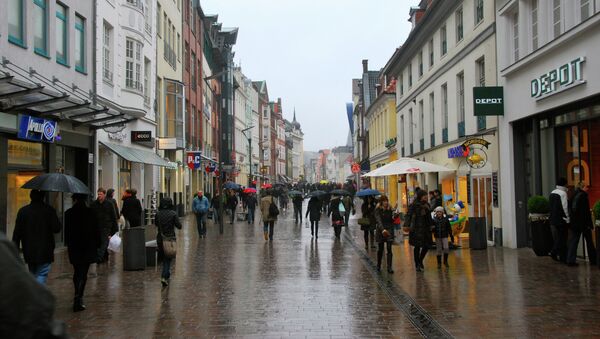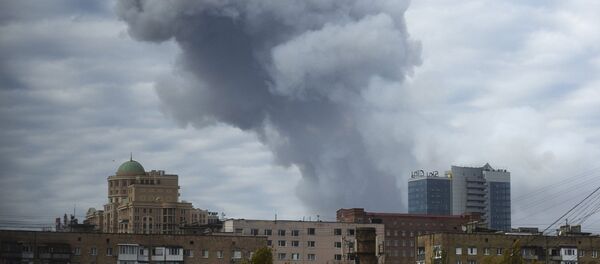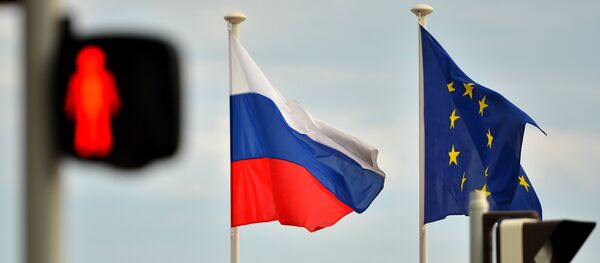"As the EU country most heavily engaged in trade with Russia, Germany is where the sanctions hit hardest," Gilbert Doctorow, a Research Fellow at American University, told Sputnik Friday, stressing that 300,000 German jobs depend on trade with Russia.
According to Doctorow, many of these jobs "are or will be lost as sales of German manufactured goods are falling quickly".
A recent ICM Research poll, conducted exclusively for Sputnik, revealed that 40 percent of Germans believe sanctions against Russia should be lifted. Thirty-eight percent of German respondents said sanctions should remain the same, while only 14 percent said they should be tightened.
"The Germans are more in favor of lifting sanctions for the simple reason that the German economy is the most integrated into Russian markets of all the other European economies," Anton Fedyashin, the Executive Director of the Initiative for Russian Culture at American University, explained in an interview with Sputnik Friday.
According to Fedyashin, if a "full financial crisis" happens in Russia, the German economy will receive the first blow, as "Russian banks and businesses owe most of their debt to German banks".
"Germany has also played a leading role as a mediator in the Ukrainian crisis, with a greater interest in de-escalating the current standoff between Moscow and the West," Eurasia analyst at geopolitical analysis and forecasting company STRATFOR, Eugene Chausovsky, told Sputnik Friday.
Meanwhile, professor of German and European Studies at Georgetown University, Jeffrey J. Anderson, told Sputnik that the German public is also worried that the tensions with Russia and the crisis in Ukraine could morph into a "shooting war".
"I think these sentiments can be traced both to a stronger pacifist streak in Germany, but also a greater willingness over the years, dating back to the Cold War, to find ways to accommodate Russian foreign policy positions," Anderson said Friday.
The European Union, the United States and their allies have implemented a series of sanctions, targeting Russia's defense, energy and banking sectors, over its alleged involvement in the situation in Ukraine. Russia has repeatedly denied the claim, stressing that sanctions are "counterproductive" and hurt those, using the measure, in addition to the target country.
Russia has also imposed a one-year ban on the import of certain foods from the United States, the European Union, Canada, Australia and Norway.







